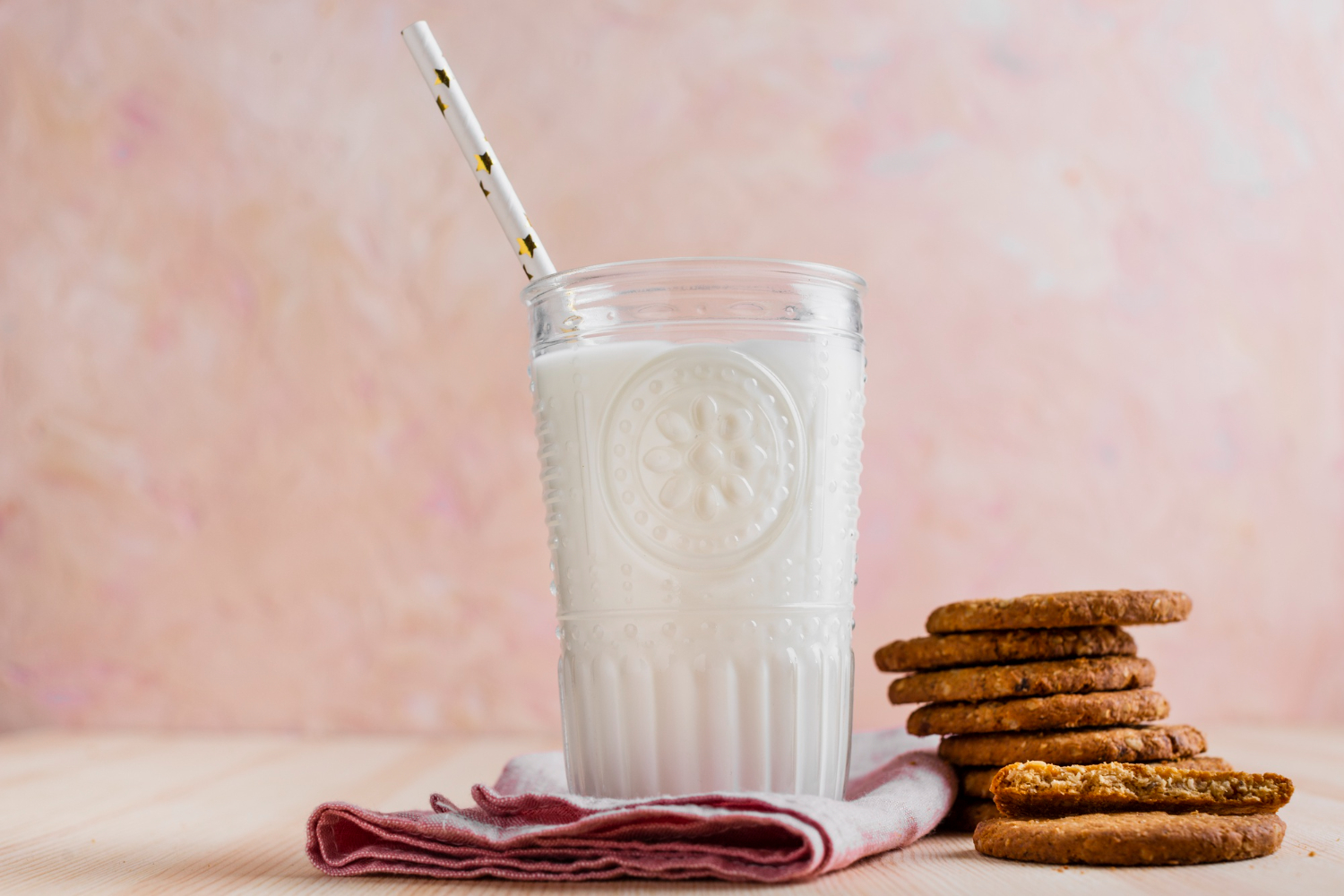
MILK
The Elixir of Life
Milk is nature’s perfect food, packed with essential nutrients like calcium, protein, vitamins, and minerals. It is a complete source of protein, containing all nine essential amino acids crucial for muscle repair and growth. Calcium in milk promotes strong bones and teeth, while vitamin D aids in its absorption. Additionally, milk provides a rich source of B vitamins, potassium, and phosphorus, contributing to overall health and vitality.
A Nutritional Powerhouse
Milk is nature’s perfect food, brimming with a unique combination of essential nutrients. It contains high-quality proteins, including casein and whey, which are vital for muscle repair and growth. Additionally, milk is an excellent source of calcium, crucial for building strong bones and teeth. It also provides a wealth of vitamins and minerals, such as vitamin D, potassium, and phosphorus, contributing to overall health and well-being.
Fueling Growth and Development
For infants, milk is more than just nutrition; it’s a lifeline. Mother’s milk, in particular, is tailor-made to meet the needs of a growing baby, providing antibodies for immunity and fostering a strong bond between mother and child. As children grow, milk continues to play a pivotal role in their development, supporting healthy bones, cognitive function, and immune system function.
A Versatile Ingredient
Beyond its nutritional benefits, milk’s versatility knows no bounds. It serves as a cornerstone ingredient in countless culinary creations, from creamy soups and sauces to decadent desserts. Whether enjoyed as a refreshing glass of cold milk or incorporated into savory dishes, milk adds richness, flavor, and texture to a wide array of recipes, making it a staple in kitchens around the world.
Cultures and Traditions
Milk holds a special place in cultures and traditions worldwide. In many societies, milk symbolizes purity, fertility, and abundance, often featuring prominently in religious ceremonies and rituals. From the sacred cows of Hinduism to the ceremonial drinking of milk during weddings and festivals, milk’s significance transcends mere sustenance, embodying cultural heritage and spiritual significance.
Health Benefits Beyond Childhood
The health benefits of milk extend far beyond childhood, offering a multitude of advantages for adults as well. Research has shown that consuming dairy products, including milk, may lower the risk of osteoporosis, hypertension, and type 2 diabetes. Additionally, milk’s high protein content makes it an ideal post-workout recovery drink, aiding in muscle repair and replenishment.
Sustainability and Ethical Considerations
While milk has long been cherished for its nutritional value, concerns have arisen regarding its environmental impact and ethical considerations. The dairy industry’s carbon footprint, water usage, and treatment of animals have come under scrutiny, prompting many consumers to seek out alternative options, such as plant-based milk alternatives. However, it’s essential to weigh the pros and cons of each choice and make informed decisions that align with personal values and beliefs.
Embracing Milk’s Timeless Appeal
Despite the rise of alternative milk products, there’s no denying the timeless appeal of traditional dairy milk. Its rich flavor, creamy texture, and unparalleled nutritional profile continue to captivate taste buds and nourish bodies worldwide. Whether enjoyed on its own or incorporated into a favorite recipe, milk remains a beloved staple in households everywhere, transcending trends and standing the test of time.
Conclusion
In a world filled with fleeting health fads and ever-changing dietary advice, milk stands as a beacon of consistency and reliability. From its role in infancy to its contributions to overall health and well-being, milk truly is the elixir of life. As we celebrate its timeless appeal and embrace its myriad benefits, let us remember to savor each sip and appreciate the profound impact this humble beverage has on our lives.
